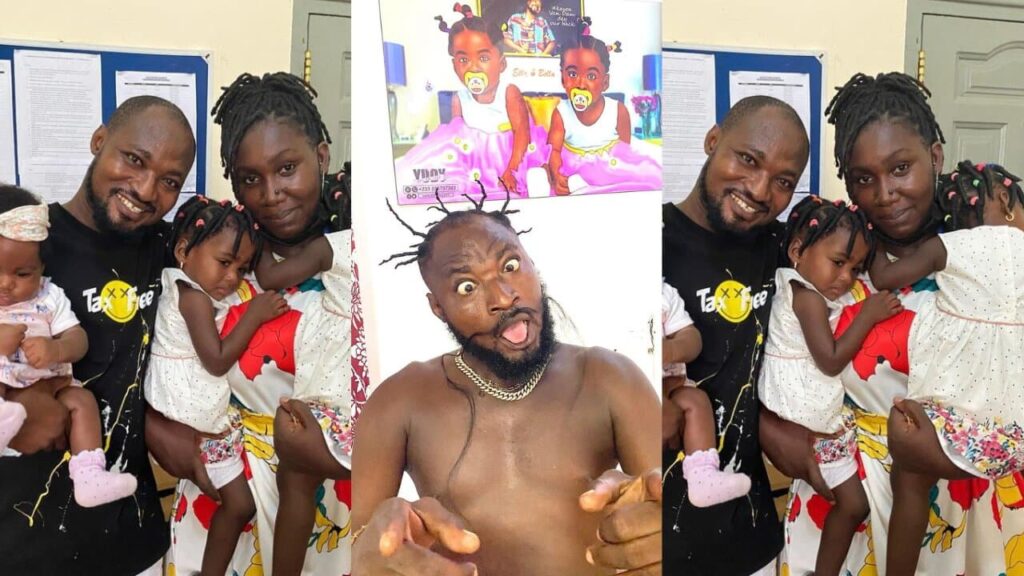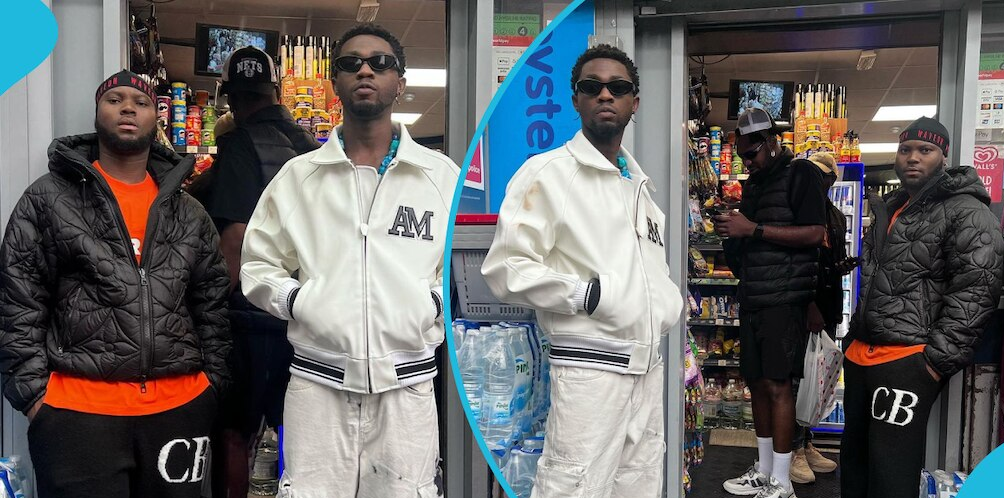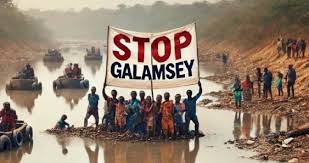Ghanaian comedian Funny Face’s recent struggles have caught national attention. According to Shatta Wale, what the comedian is going through is about much more than a broken relationship. In a heartfelt Facebook post, Shatta Wale pointed out that the comedian’s plight is a reflection of larger systemic issues within the creative arts industry. He called for an end to the silence surrounding mental health struggles and urged the industry to support its members more effectively.

Background of Funny Face’s Struggles
Funny Face, born Benson Nana Yaw Oduro Boateng, has faced multiple challenges in recent years, from a turbulent personal life to mental health issues. He has openly shared his battle with depression, brought on by the strains of his failed relationships and difficulties in accessing his children. His public breakdowns have sparked concern and conversations about the pressures facing public figures, particularly those in the creative sector.
Shatta Wale’s Perspective
Shatta Wale, a fellow entertainer and outspoken figure in Ghana’s creative industry, used his platform to draw attention to Funny Face’s struggles. In a passionate Facebook post, he wrote that what’s happening to Funny Face isn’t just about his failed relationships but is symptomatic of the broader cracks in the creative industry. Shatta Wale’s message was clear: the industry must stop ignoring its problems and provide support to those who need it.
The Role of the Creative Arts Industry
The creative arts industry is often seen as glamorous, but beneath the surface, it can be a high-pressure environment. Creatives are frequently subjected to intense public scrutiny, which can exacerbate feelings of frustration and isolation. Shatta Wale’s post alluded to the idea that depression and mental health struggles are widespread among artists, yet the industry remains ill-equipped to handle these challenges.
Funny Face’s Battle with Mental Health
Funny Face has been candid about his mental health challenges, openly discussing his bouts of depression and seeking professional help at various points in his life. His public outbursts and emotional breakdowns, particularly related to his inability to see his children, have raised questions about how much support public figures truly receive when they are struggling behind the scenes.
The Impact of Relationship Problems
A significant part of Funny Face’s recent troubles revolves around his relationship with his ex-girlfriend and their three children. His long-standing custody battle has reportedly taken a severe toll on his mental health. In several of his public outbursts, he mentioned feeling powerless and heartbroken over not being able to see his children for over four years. This emotional strain has only added to the pressure he faces both personally and professionally.
Mental Health Stigma in the Creative Industry
Mental health remains a taboo topic, particularly within the creative industry. Many entertainers are expected to maintain a public persona of happiness and success, even when they are struggling internally. Shatta Wale’s message highlights the need for more open conversations about mental health in the industry, advocating for an end to the stigma surrounding mental health issues.
The Creative Industry’s Responsibility
Shatta Wale’s post is a call to action. He argues that the creative arts industry must take responsibility for the well-being of its members. This includes providing mental health resources, breaking the culture of silence, and supporting those who are struggling. The industry must acknowledge its problems rather than brushing them aside.
The Need for Mental Health Resources
To address the mental health challenges faced by individuals like Funny Face, the creative arts industry needs to invest in resources that can provide support, such as counseling, therapy, and peer support groups. These initiatives can create a more nurturing environment where artists feel comfortable seeking help without fear of judgment.
Accident Involving Funny Face
On March 24, 2024, Funny Face was involved in a motor accident at Kasoa in the Central Region. According to eyewitnesses, his car collided with a woman, two children, and a man on a motorbike. While the victims were rushed to the hospital, the incident added to the growing concern over Funny Face’s well-being.
Connection Between Personal and Professional Struggles
Funny Face’s personal and professional struggles are deeply intertwined. As an entertainer, he is constantly in the public eye, and the weight of his personal issues has undoubtedly impacted his career. His emotional outbursts are not just a reflection of his private pain but also the immense pressure placed on public figures to maintain an image of perfection.
The Media’s Role in Highlighting Mental Health
The media plays a crucial role in how mental health issues are perceived by the public. Unfortunately, sensationalism often takes precedence over responsible reporting, with stories focusing on the drama rather than the underlying issues. The media has the power to shift this narrative by encouraging constructive conversations around mental health and providing a platform for those struggling.
Shatta Wale’s Advocacy for Change
As one of Ghana’s most prominent entertainers, Shatta Wale’s voice carries weight. His decision to speak out about Funny Face’s situation reflects a growing movement among artists to advocate for change within the industry. By taking a stand, Shatta Wale is urging both the public and the industry to recognize the importance of mental health and to provide better support for creatives.
Funny Face’s Journey Forward
As Funny Face continues to navigate his personal and professional struggles, there is hope that his situation will lead to meaningful reforms within the creative arts industry. The conversations sparked by Shatta Wale’s post have brought mental health into the spotlight, and with the right support, Funny Face may be able to make a full recovery.
Conclusion
What’s happening to Funny Face is a reflection of larger, systemic issues within the creative arts industry. Shatta Wale’s message has highlighted the need for change, particularly in how the industry addresses mental health. By breaking the silence and providing support, the creative arts community can ensure that no artist has to suffer in isolation.
FAQs
- What did Shatta Wale say about Funny Face’s struggles? Shatta Wale said that Funny Face’s challenges go beyond marital issues, pointing to deeper problems within the creative industry.
- Why is mental health important in the creative arts industry? Mental health is crucial in the creative industry due to the pressures public figures face, often leading to depression and burnout.
- What challenges has Funny Face faced in recent years? Funny Face has battled depression, a difficult relationship with his ex-girlfriend, and custody issues over his children.
- How can the creative arts industry support mental health? The industry can offer counseling, therapy, and peer support programs to provide a safety net for struggling creatives.
- What happened to Funny Face in Kasoa? Funny Face was involved in a motor accident in Kasoa, which raised concerns about his mental state and overall well-being.


















